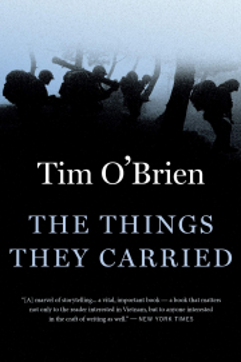By Erica Shook  Though I am a vocal proponent of getting more contemporary YA lit. into the hands of our students, I do still enjoy teaching some of the classics. The balance in my classroom has come from connecting classic and contemporary works. For example, after we read Beowulf together in class, students choose from four different contemporary novels that they read together in small groups and then connected back to Beowulf (Kendare Blake’s Anna Dressed in Blood, Moira Young’s Blood Red Road, Marie Lu’s Legend, or Neal Shusterman’s Unwind). As an avid reader, my brain is constantly looking for text connections. And with increasing frequency, I find myself connecting current events to texts as well. The current reality for teachers has caused me to do just that. I have adapted what follows a bit because I originally wrote and presented it to our school board to try to build empathy among them for the load teachers are currently carrying. That is what English teachers do, right? Use writing and books to build empathy? The message, however, remains the same. Much like the soldiers in Tim O’Brien’s book The Things They Carried, what teachers carry is partly a function of experience, partly a function of specialty, and partly born of necessity. We carry a veritable rainbow of Expo markers--some that work well, some that we are trying to squeeze the last bit of ink out of; notebook paper; construction paper, printing paper, butcher paper, card stock, poster board; glue; scissors; duct tape, scotch tape, masking tape, painters tape, packaging tape, book repair tape; lab supplies; paper clips; pencils, pens, markers, sharpies, crayons, colored pencils; paint; bulletin board border; rulers; kleenex; band aids; Post-it notes; keys; white out; rubberbands; staplers; index cards; note cards; popsicle sticks; candy; books, books, books; computers, charging cords, cables; granola bars; crackers; chocolate; hand sanitizer, Virex, masks; gallons of coffee; water bottles with times on the side to remind us to stay hydrated; stacks and stacks of papers to grade; and, Flairs in every color. I won’t bore you with the precise weight of each of these items, but know that combined, these things are heavy--and we probably paid for most of them out-of-pocket. As with O’Brien’s characters, the things teachers carry, though, are both literal and figurative. We also carry the professional development that we don’t have time to work with and implement; field trips we can’t experience; technology that doesn’t always work; lesson plans that implode because they were better on paper and have to be reworked on the spot; our own families that don’t always get our full attention when we are at home; dusting, laundry, and dishes that sometimes pile up; continuing education credits; students in our classrooms who struggle (both academically and emotionally) but whom we don’t have time to work with one-on-one; hundreds of decisions every hour--many of them split second; students who are suffering because of bullying; students who are hungry or tired; students who are neglected or abused; students who have lost loved ones or friends; students who feel they can’t share their true identity; students who rarely see themselves reflected in curriculum; students’ failures; students’ successes; students’ smiles; students’ tears; students who have been lost in accidents; students who have contemplated suicide; students who have taken their lives before they’ve really had a chance to live them; and, more love than any human heart should be able to hold for every single one of them who ever passes through our doors. The weight of these things is incredibly heavy. Sometimes almost unbearably so. But we carry it because we love what we do, and we love our students. It genuinely is who we are. But this year, we also carry the weight of students in the classroom and at home with technology that glitches or crashes; catching up students who missed class or missed parts of instructions because of those glitches and crashes; students and staff in quarantine; finding ways to provide equitable opportunities to in-person and remote students alike; students embarrassed to turn on cameras or too shy to unmute microphones; lost instruction time for more sanitizing; the endless, endless emails; the extra prep needed to make sure students at home have the materials they need ahead of time to actively participate in class; time spent converting curriculum to digital versions of itself; learning new tools to do so; needing to collaborate with colleagues with no time to do it; building the relationships and giving the hugs our students need while maintaining social distancing to keep everyone healthy and at school; knowing social-emotional needs are not being met; understanding why some of our students have chosen remote learning but missing having their masked faces in class with us; helping our own children be successful with their learning; the overwhelming guilt for the things we know are necessary but are beyond our ability to do; balancing it all; balancing the emotions; the all-encompassing exhaustion; and listening to one person after another tell us we can’t pour from an empty cup when we rarely have a chance to fill it or suggesting what we need is to take a mental health day with no understanding that the things we carry never get lighter for having done so--it just buys us a bit more time before we collapse under the physical, mental, and emotional weight. Kansas is already experiencing a teacher shortage it will take years to get ahead of, and many more will leave the profession this year, maybe even at the end of this semester, because of the toll the weight of the things they carry is taking. I am concerned for Kansas teachers and the sustainability of our situation. I wonder, as the decision-makers in districts are meeting, whether they have gotten into classrooms to experience the current teaching reality? I don’t mean walk-throughs. I mean, have they spent entire class periods or days in multiple content areas to truly understand the new workload? I want anyone who reads this to know I see you--KATE sees you--and we know how hard you are working for your students. KATE is thankful all year long for Kansas teachers, the magic they bring into their classrooms every day, and the passion with which they teach Kansas students. My hope is administrators, school board members, legislators, and other decision-makers keep in mind the immense weight of the things our teachers carry.  About the Author Erica Shook is the English Department Chair at McPherson High School, USD 418, and a 2020 LEGO Master Educator. Because of her passion for students, educators and education, ELA, YA literature, and social activism, she is also a Project LIT Community chapter leader, LiNK Adolescent Lit. CoP Leader, and the KATE Vice-President. Follow her on Twitter at @Ms_Shook or on Instagram at @ms_shook for book suggestions to build classroom libraries or for continued professional development. |
Message from the EditorWelcome! We're glad you are here! Archives
April 2024
Categories
All
|


 RSS Feed
RSS Feed